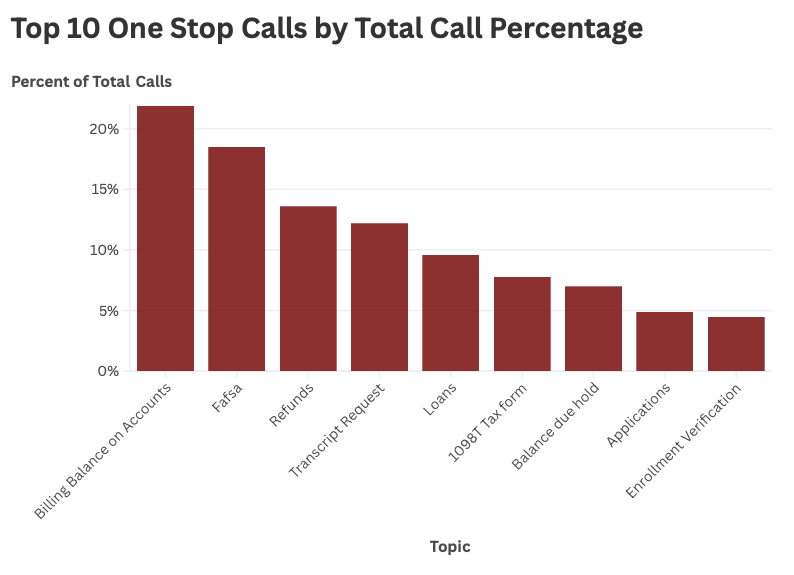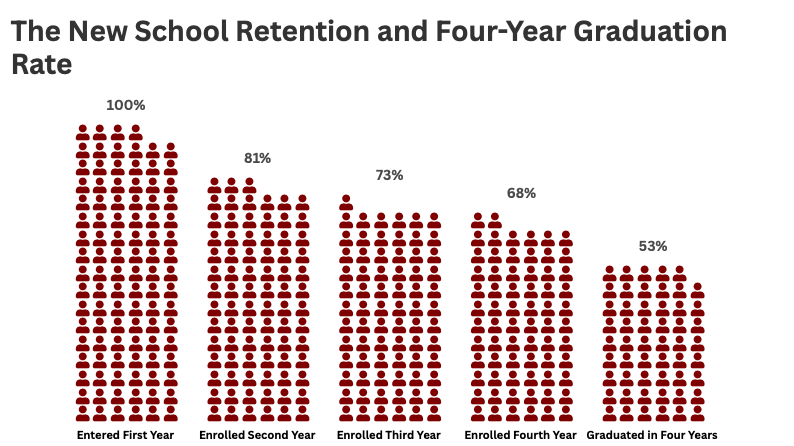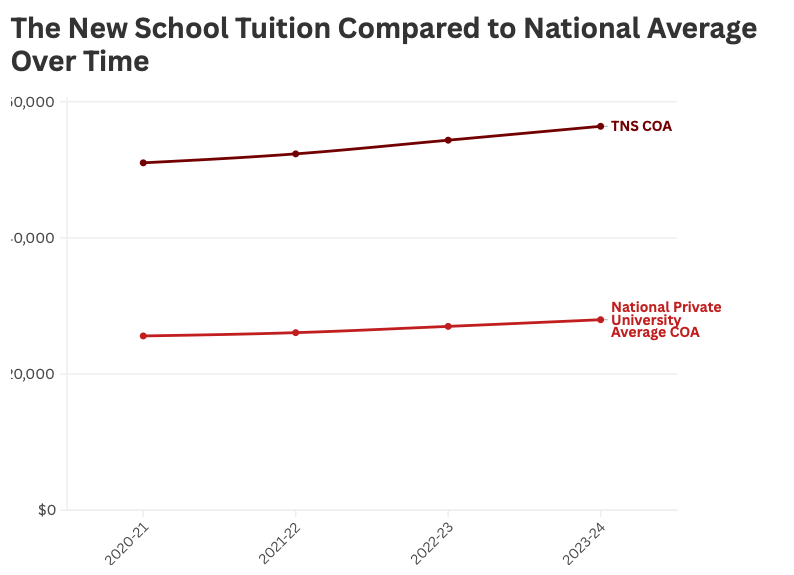The New School’s One Stop Student Service Center will be celebrating its second anniversary this June. The office aims to increase student retention and graduation rates by helping students navigate financial questions, according to One Stop director Jill Corson Lake.
One Stop is a direct resource center for students who have questions about the registrar, student accounts, and financial aid. Students can access the One Stop office in person, over the phone, by email, and through a digital assistant online.
Though the office can help answer multiple concerns, more than half the calls it has received from July 2023 to January 2025 have been related to finance, according to data from One Stop provided to the New School Free Press.
The office’s website notes that “the One Stop office is the first stop for students and their families seeking answers to questions about billing and payment, financial aid, registration, and student records.” In the first nine months since it was founded, students used One Stop to ask over 4,500 questions, according to The New School’s Office of Institutional Research and Decision Support’s (IR) June 2024 digest about the progress of TNS One Stop Student Service Center.

Out of the top 10 categories, financial questions and concerns made up over 75% of One Stop calls, according to data from One Stop.
Walker Callaway, a second-year Strategic Design and Management student at Parsons School of Design, said that he has used the One Stop office to get answers to housing and tuition-related queries.
“We were struggling to get in direct contact with the housing people and our tuition people. We used One Stop and we were able to get a more direct answer, or at least sent to someone who could direct us somewhere else,” Callaway said.
For students like Callaway, the financial aspect of attending college can leave questions that the One Stop office aims to address. “We listen and figure out what needs to be addressed in which order, and we try to help the student in the moment … to keep them from needing to talk with three different offices,” Corson Lake said.
Beyond helping students with questions, the One Stop office also recognized a link between student retention and graduation rates to One Stop accessibility, which they aim to address with their service, according to Corson Lake.

For the average incoming bachelor’s class, 53% of the students will graduate in four years, according to IR Digest.
According to a report by the National Association of Student Financial Aid Administrators (NASFAA), “85% of adults — who either stopped out or never enrolled in a higher education program — said an important reason why they weren’t currently enrolled is because of the cost of the degree or credential program.”
Student loan provider Sallie Mae said in a 2024 report there are many reasons why students choose not to return to their universities, such as other responsibilities or health challenges. However, the number one reason was financial issues.

According to data from the Integrated Postsecondary Education Data System (IPEDS) about TNS and the national average university, The New School’s cost of attendance is 1.89 times more expensive than that of the average private university in the nation.
“Only 4 in 10 students on a temporary leave of absence resumed their studies as planned. Many did not return due to financial reasons,” IR Digest’s October 2024 digest said. In efforts to address this, the One Stop Student Service Center is doing work that they believe helps increase the graduation and retention rates at TNS, according to Corson Lake.
Maureen O’Mara Carver, senior consultant at the American Association of Collegiate Registrars & Admissions Officers, supports one stop services as a tool for increasing retention. “One of the most powerful tools for increasing enrollment, retention, and progress to graduation is an efficient and effective one-stop-shop for student services,” O’Mara said in a June 2024 IR Digest excerpt.
“I think if people are really frustrated and they can’t get questions answered, it leads them to lose trust in a university,” Corson Lake said. “If we can provide better service and provide solid, correct answers to people, I do think that helps with retention.”








Leave a Reply